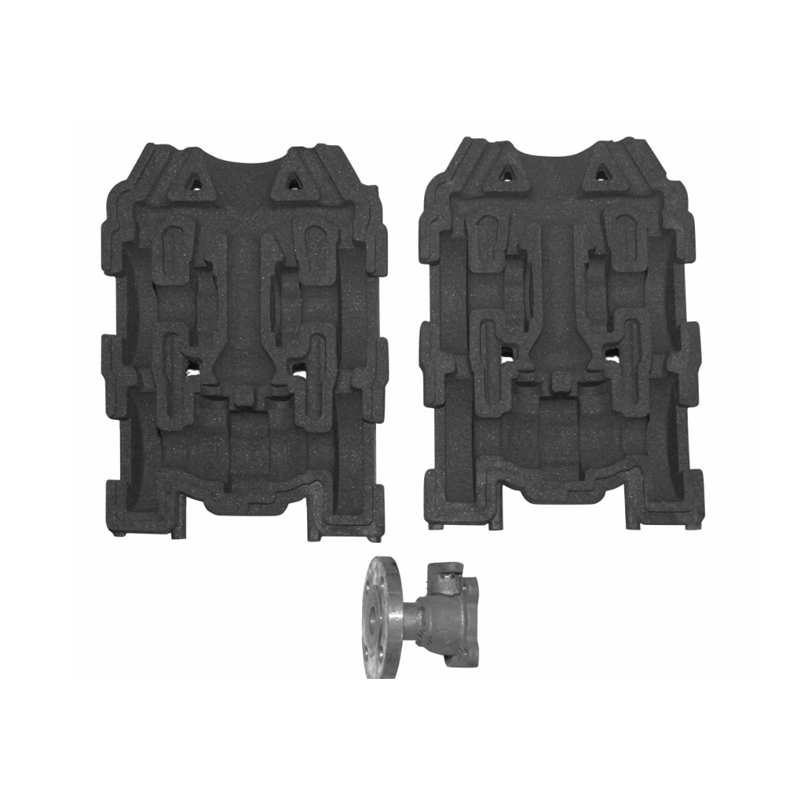The Versatility and Durability of Cast Iron Ingot Mold
Industry News-Cast iron ingot molds are essential tools in the casting industry, particularly in the production of metal ingots. An ingot is a mass of metal that is typically cast into a particular shape for further processing or alloying. Cast iron molds are frequently used for ingot production because of their ability to withstand high temperatures, their thermal conductivity, and their overall durability.

Advantages of Cast Iron Ingot Molds
High Thermal Conductivity: Cast iron has thermal conductivity compared to other metals, which is crucial during the cooling phase of ingot casting. This property allows the ingots to cool more uniformly, reducing the risk of cracks or defects during the solidification process.
Durability and Strength: Cast iron is known for its strength and resistance to wear and tear, making it ideal for repeated use. The material can withstand the intense pressure and heat involved in the molten metal casting process, ensuring that the molds last longer and require less maintenance.
Cost-Effectiveness: Cast iron is relatively inexpensive compared to other materials, making it a cost-effective option for manufacturers needing high-quality molds for mass production. Additionally, it is easier to cast and mold into different shapes, making it ideal for custom ingot mold designs.
Cast iron ingot molds are commonly used in industries like metallurgy, automotive manufacturing, and foundries. They are especially valuable in the production of steel, aluminum, and copper ingots. Due to their durability and cost-effectiveness, cast iron ingot molds are often the preferred choice for mass ingot production.
Stainless Steel Casting Molds: Precision, Resistance, and Cleanliness
Stainless steel is another popular material for casting molds, particularly in situations that require high precision and resistance to corrosion. Stainless steel casting molds are known for their robustness, ease of maintenance, and the ability to produce parts with precise tolerances.
Advantages of Stainless Steel Casting Molds
Corrosion Resistance: Stainless steel offers corrosion resistance, making it ideal for applications where the mold may come into contact with aggressive chemicals or moisture. This property extends the lifespan of the mold, reducing the frequency of mold replacements and lowering long-term costs.
High Strength and Durability: Stainless steel molds can withstand high pressure and temperatures, making them suitable for casting high-performance materials such as titanium, nickel alloys, or superalloys. This strength ensures the mold can endure continuous use without deforming or losing its shape.
Precision and Detail: Stainless steel molds are capable of producing highly detailed, intricate castings with tight tolerances. This precision is crucial in industries like aerospace, medical devices, and jewelry, where even the slightest defects can result in costly consequences.
Cleanliness and Ease of Maintenance: Stainless steel is easy to clean and maintain. It doesn't accumulate rust or other contaminants as readily as cast iron, which makes it an ideal choice for clean-room applications. This property is particularly valuable in industries where contamination can affect the final product's quality, such as pharmaceuticals or food production.
Stainless steel molds are primarily used in industries that require high-quality, corrosion-resistant, and precise castings. This includes applications in aerospace, automotive, marine, and medical industries. Stainless steel molds are also commonly used in the production of high-end jewelry, where the fine details and finishes are essential for the aesthetic value of the product.
Ring casting is a highly specialized process that requires a mold capable of achieving intricate designs and precise dimensional tolerances. Ring casting molds are primarily used in the jewelry industry to create rings made from precious metals such as gold, silver, and platinum.
 En
En
 русский
русский Español
Español عربى
عربى Deutsch
Deutsch















